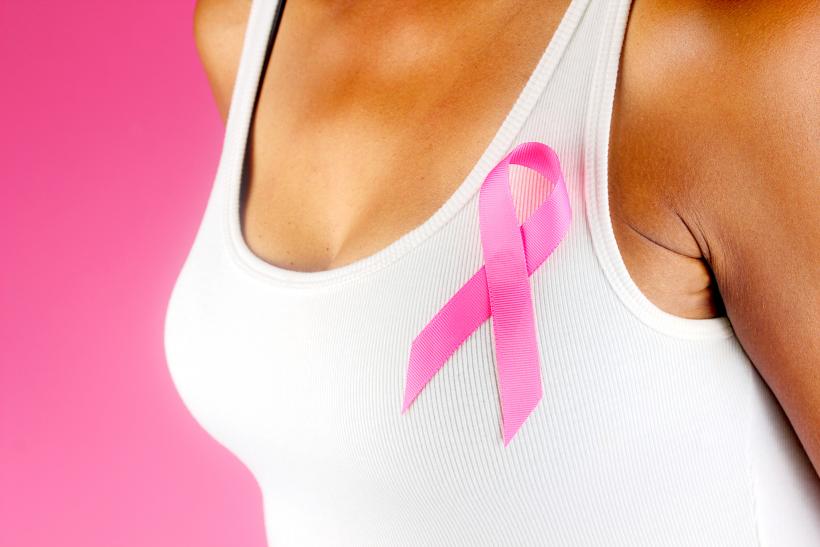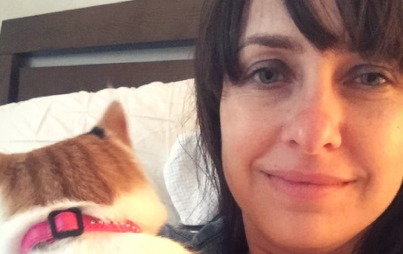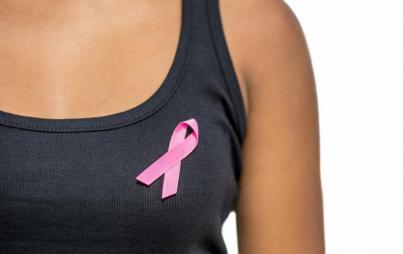
Those living with terminal cancer need support too (Image Credit: Thinkstock)
This month, everyone from N.F.L. players to school children will put on their pink in support of Breast Cancer Awareness Month. You’ll probably see a few “I Heart Boobies” bracelets, or maybe even a t-shirt urging you to “save second base.”
But underneath the pink facade and the over-simplified messages are the real faces of breast cancer, faces like that of Heather LoRe, a 50-year-old wife and mother who has been living with terminal breast cancer for eight years.
“I used to be offended by the pink ribbon messages, because none of the pink ribbon messages are directed to the people who are dying from breast cancer,” LoRe said.
In order to connect with other men and women living with a terminal diagnosis, LoRe founded Hope and Friendship Metastatic Breast Cancer Foundation, which provides a support group in northern Massachusetts, where she lives.
Through the support group LoRe has seen the devastating effects of breast cancer, which too often go unnoticed amid early detection and awareness campaigns.
“We’ve lost 15 members in five years, but most [of the public] doesn’t know that 200,000 people are living with Stage IV (terminal) breast cancer, and 44,000 die from breast cancer every year,” she said.
Patients with a terminal diagnosis are particularly in need of support, since they are fighting a long and exhausting battle.
Although many of the so-called pink ribbon campaigns don’t talk too much about terminal patients, LoRe has warmed to the awareness campaigns over time.
“Over the eight years I’ve come to embrace the pink ribbon efforts,” she said. “If it helps less people become Stage IV, of course I’m all for that.”
She has also seen the way that awareness campaigns have a direct effect on her family and others living with cancer.
“Through the pink ribbon campaigns, Hope and Friendship has received a ton of support, people wanting to help patients, families and caregivers,” she said. “That has been a very surprising and remarkable response to me.”
Patients with a terminal diagnosis are particularly in need of support, since they are fighting a long and exhausting battle. LoRe was first diagnosed with breast cancer twelve years ago, and underwent a mastectomy, chemotherapy, and radiation. However, four years later, her cancer returned and she was given three to five years to live.
“I was in shock,” she said. When LoRe was able to take action, she set about getting her affairs in order, and then turned to the most important task:
“‘I changed my lifestyle completely in terms of trying to live as long as I could,” she said. “Eating better and exercising, trying to do anything you can to live as long as you can, as well as you can, becomes your priority.”
Although that is an understandable focus, it’s an exhausting one. LoRe deals with chronic pain and fatigue, and although she has been stable on a particular drug for many years, cancer is an ever-present force in her life.
“Fighting cancer is a full time job,” she said. “It’s an exhausting struggle.”
Friends and family are often interested in helping after a diagnosis, but that initial support often wanes in the following years, when living with cancer becomes the new normal.
Anything that gives patients added time with their families and helps alleviate the financial burden of cancer is a welcome support, LoRe said. Hope and Friendship provides a list of ways to help someone with terminal cancer, which includes things like setting up and paying for a cleaning service, taking the kids for a playdate, or dropping a meal at the door, without pressure to visit.
Practical supports are immensely helpful in dealing with the mundane parts of daily life that still demand attention when a family is in crisis.
“Nobody wants to do the shopping, prepare food, or clean the yard,” LoRe said.
She also mentioned that it’s important to think before you speak, since well-intentioned remarks are often not appropriate for people with a terminal diagnosis.
“They’ll say, ‘I hope you feel better,’ but I’ve been hoping that for years and I don’t feel better. Or, ‘I hope you beat the cancer.’ I already know that the cancer is terminal, so that’s not helpful.”
Being present with the disappointment and fear that can accompany a terminal diagnosis is a wonderful way to support someone fighting cancer.
LoRe draws inspiration from her husband and daughter, and her friends’ children, as well as from the members of her support group “who have found ways to conquer the burden of knowing you have a terminal illness.”
“It’s about finding ways to make life as good as it can be for the time that you’re here,” she said.







